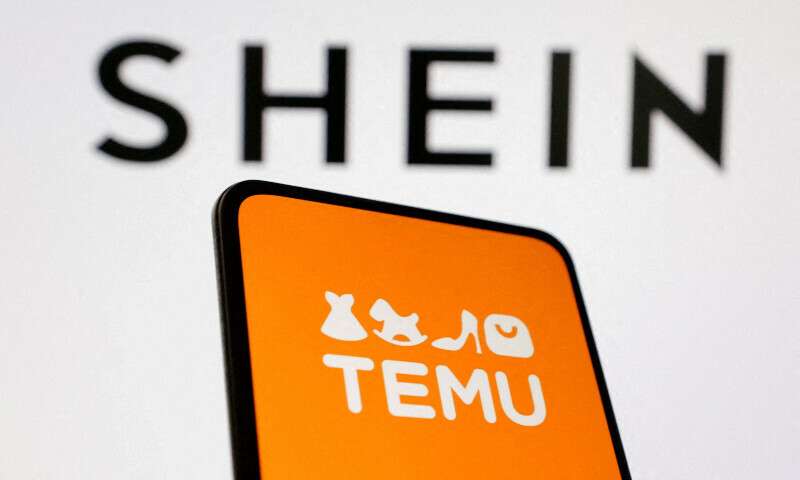The recent lockdown imposed by the government in key cities, including Islamabad and major Punjab locations, has triggered a major disruption in the supply chain of petroleum products. The lockdown, intended to counter the political agitation led by the PTI (Pakistan Tehreek-e-Insaf), has had unintended consequences on the movement of fuel tankers and other essential services. In this article, we will explore the growing concerns regarding fuel shortages, the role of state-run and private oil companies, and the actions being taken to mitigate the crisis.
The Impact of the Lockdown on Fuel Supply Chains
The government’s decision to impose stringent lockdown measures, blocking major roads, highways, and motorways, has created significant hurdles for the transportation of petroleum products. This move, which was primarily aimed at controlling the movement of protestors and ensuring law and order, has led to a situation where fuel tankers and supply trucks are unable to move freely across key routes. This has affected the timely delivery of fuel to retail outlets, especially in cities like Lahore, Rawalpindi, and Islamabad, which are now facing the risk of running dry.
Disruptions to Petroleum Transportation
With the tight lockdown in place, the flow of fuel from storage depots to retail pumps has been severely hampered. Tankers carrying petroleum products are unable to reach their designated destinations due to barricades and police checkpoints. In many cases, fuel tankers already en route have been instructed to offload their cargo at the nearest fuel station for safety reasons. This precautionary measure is taken to avoid any mishaps, as fuel tankers are considered high-risk vehicles in volatile situations.
Moreover, private oil marketing companies (OMCs) have also been taking extra precautions by limiting the movement of their fuel tankers. The result has been a significant decrease in fuel availability at retail pumps, especially in high-demand areas such as Lahore, Rawalpindi, and Islamabad.
Growing Concern Over Fuel Shortages
As the lockdown drags on, fears are escalating over the potential for widespread fuel shortages in Pakistan’s key economic centers. Retail pumps in critical areas are already running low on stock, leaving drivers and businesses scrambling for fuel. The lack of timely deliveries has created a strain on essential services, which rely on a steady fuel supply to maintain daily operations.
The Role of Pakistan State Oil (PSO) in Managing the Crisis
In light of the fuel supply disruptions, Pakistan State Oil (PSO), the country’s largest fuel supplier, has been under immense pressure to ensure continued fuel availability. PSO has taken swift action to address the situation, reporting the crisis to both federal and provincial governments as well as the Oil and Gas Regulatory Authority (OGRA). The company has specifically highlighted the vulnerability of Lahore Division, a critical economic hub, where fuel stations are at risk of running out of stock due to road closures and transport delays.
PSO has requested immediate intervention from both the local government and law enforcement agencies to facilitate the free movement of fuel tankers. According to PSO officials, ensuring uninterrupted fuel supplies is essential not only for stabilizing the situation in Lahore Division but also for preventing the crisis from spreading to other parts of the country.
Assistance Requested for Fuel Transportation
In addition to PSO’s appeal, the Oil Companies Advisory Council (OCAC) — an association of private oil marketing companies and refineries — has also raised alarms about the fuel supply chain breakdown. OCAC has called on the administrations of Islamabad and Punjab to prioritize the movement of fuel tankers and ensure the uninterrupted flow of petroleum products to retail pumps. The organization has highlighted the urgency of this situation, warning that further delays in fuel transportation could lead to a severe shortage that would affect daily life and essential services across the country.
Efforts to Address the Fuel Supply Crisis
To tackle the growing fuel shortage, government authorities are working closely with PSO and other OMCs to ease restrictions on fuel transportation. While the lockdown remains in effect to maintain law and order, efforts are being made to ensure that fuel tankers can pass through critical routes without facing unnecessary delays or obstacles.
Focus on Lahore Division
Lahore Division, one of the most important economic and commercial centers in Pakistan, is at the heart of the ongoing fuel supply crisis. The disruption of fuel deliveries to this region has a ripple effect on the rest of the country, given the importance of Lahore’s industries, businesses, and daily commuters. To mitigate the situation, PSO and the provincial government are working together to create designated fuel routes and provide necessary security measures to ensure the safe passage of fuel tankers.
In addition, PSO has requested the Punjab government to mobilize law enforcement agencies to provide special assistance to fuel suppliers. The aim is to prioritize fuel deliveries to Lahore and surrounding areas and to prevent the risk of fuel stations running out of stock in these critical locations.
Collaborative Efforts to Ensure Fuel Availability
The government’s response to the crisis is collaborative, involving input from federal and provincial authorities, oil companies, and law enforcement agencies. While the situation remains tense, there is a concerted effort to minimize the impact of the lockdown on fuel supplies. Both public and private sector entities are working together to restore the supply chain and alleviate shortages in affected areas.
The Bigger Picture: Political Instability and Fuel Supply
The current crisis highlights the vulnerability of Pakistan’s fuel supply chain to political instability and external disruptions. While fuel shortages may seem like a temporary issue, their long-term effects on the economy can be far-reaching. Disruptions in fuel transportation affect not only individual consumers but also industries, businesses, and the daily functioning of critical services. Therefore, addressing the current crisis and implementing measures to safeguard the fuel supply chain in the future is of utmost importance.
Looking Ahead: Long-Term Solutions
To prevent similar crises in the future, experts suggest that Pakistan needs to develop more resilient supply chains and contingency plans for times of political instability. Diversifying the routes used for fuel transportation and ensuring better coordination between oil companies and government authorities could help mitigate the risk of fuel shortages in times of crisis. Additionally, increasing the storage capacity at fuel stations could provide a buffer during unexpected disruptions.
FAQs
1. What caused the disruption in fuel supply in Pakistan? The disruption was caused by the government’s lockdown of major cities, highways, and motorways in response to political protests, which blocked the movement of fuel tankers and delivery vehicles.
2. Which areas are most affected by the fuel shortage? The fuel shortage is primarily affecting Lahore, Rawalpindi, and Islamabad, where retail fuel pumps are running out of stock due to delayed deliveries.
3. What actions are being taken to resolve the crisis? The government is coordinating with PSO and private oil companies to facilitate the movement of fuel tankers and restore normal supply to affected areas.
4. How is PSO helping in this situation? PSO is working with both federal and provincial authorities to prioritize fuel deliveries to Lahore and other critical regions, ensuring the uninterrupted supply of petroleum products.
5. Could this situation lead to a broader oil crisis? If the situation is not addressed promptly, it could lead to a nationwide fuel shortage, affecting businesses, industries, and essential services across Pakistan.
Conclusion
The disruption of fuel supply in Pakistan due to the ongoing lockdown highlights the fragility of the country’s fuel transportation system during times of political instability. While efforts are underway to restore normal fuel distribution, the situation remains delicate. Coordinated efforts from the government, oil companies, and law enforcement agencies will be crucial in ensuring the uninterrupted supply of fuel to affected regions, particularly Lahore Division, which plays a pivotal role in Pakistan’s economy.
SEE ALSO:

